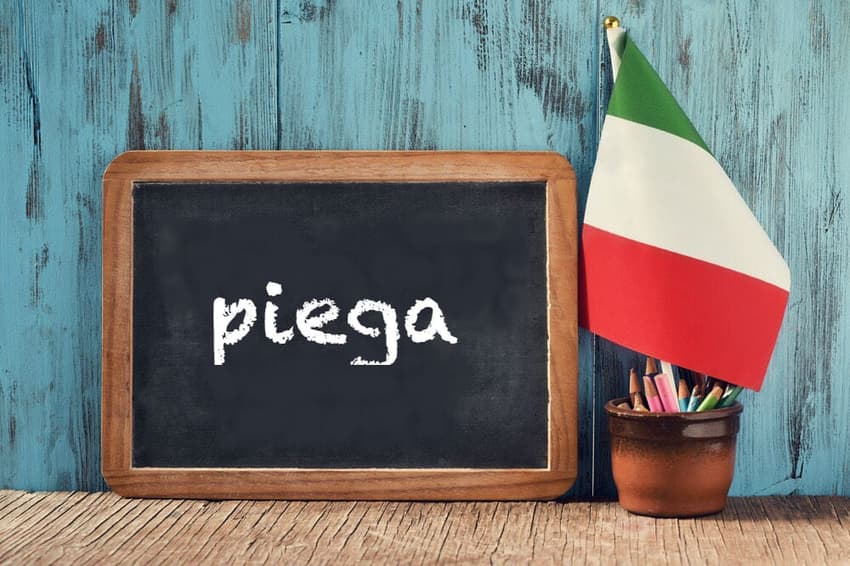
Italian word of the day: 'Piega'

When life takes a turn, this word’s here for you.
Taken at face value, piega is a simple word that means a fold or a crease, like you find in fabric or paper. When used in its literal sense, you’ll most often see it in verb form.
- Fare attenzione a non piegare il cavo.
- Take care not to bend the cable.
- Vieni qua e piega questi vestisti.
- Come here and fold these clothes.
When used as a noun, however, piega often refers to unexpected events leading you down a different path than the one you thought you were on.
The new path might be worse.
- Le cose stanno prendendo una brutta piega.
- Things are taking a bad turn.
Or better.
- Sto aspettando che la mia vita prenda la giusta piega.
- I’m waiting for my life to kick into the right gear.
- La sua salute ha preso una piega migliore.
- Her health’s taken a turn for the better.
Or just different.
- Questa settimana ha preso una piega diversa.
- This week’s taken a different turn.
- La mia festa ha assunto una piega imprevista.
- My party’s gone in an unexpected direction.
There’s at least one other use, however, for this versatile word.
If a piega is a fault or an imperfection, an idea or a plan *without* a piega is airtight, or faultless.
The phrasing of this in Italian is non fa una piega – literally, something that “makes no fault” or, you might say, “doesn’t put a foot wrong”.
- Il loro ragionamento non faceva una piega.
- Their logic couldn’t be faulted.
- Il suo alibi non fa una piega.
- Her alibi’s airtight.
Do you have a favourite Italian word you'd like us to feature? If so, please email our editor Jessica Phelan with your suggestion.
Comments
See Also
Taken at face value, piega is a simple word that means a fold or a crease, like you find in fabric or paper. When used in its literal sense, you’ll most often see it in verb form.
- Fare attenzione a non piegare il cavo.
- Take care not to bend the cable.
- Vieni qua e piega questi vestisti.
- Come here and fold these clothes.
When used as a noun, however, piega often refers to unexpected events leading you down a different path than the one you thought you were on.
The new path might be worse.
- Le cose stanno prendendo una brutta piega.
- Things are taking a bad turn.
Or better.
- Sto aspettando che la mia vita prenda la giusta piega.
- I’m waiting for my life to kick into the right gear.
- La sua salute ha preso una piega migliore.
- Her health’s taken a turn for the better.
Or just different.
- Questa settimana ha preso una piega diversa.
- This week’s taken a different turn.
- La mia festa ha assunto una piega imprevista.
- My party’s gone in an unexpected direction.
There’s at least one other use, however, for this versatile word.
If a piega is a fault or an imperfection, an idea or a plan *without* a piega is airtight, or faultless.
The phrasing of this in Italian is non fa una piega – literally, something that “makes no fault” or, you might say, “doesn’t put a foot wrong”.
- Il loro ragionamento non faceva una piega.
- Their logic couldn’t be faulted.
- Il suo alibi non fa una piega.
- Her alibi’s airtight.
Do you have a favourite Italian word you'd like us to feature? If so, please email our editor Jessica Phelan with your suggestion.
Join the conversation in our comments section below. Share your own views and experience and if you have a question or suggestion for our journalists then email us at [email protected].
Please keep comments civil, constructive and on topic – and make sure to read our terms of use before getting involved.
Please log in here to leave a comment.